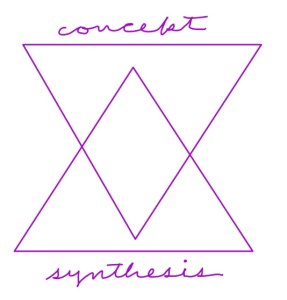Faith is that by which we experience reality as real and true. Faith takes what is given as given.
*
We might say we “have faith”, but we should not allow this expression to mislead us: Faith is not a possession; faith possesses. We do not have faith; faith does our having.
One of the things faith possesses is the content of our beliefs. If something is actually believed, faith’s action actualizes the belief.
(Faith does much more than believing beliefs, but for now, let’s focus on beliefs.)
Sometimes we want to believe something that we cannot actually believe, because faith somehow refuses to accept and actualize an authentic belief. Sometimes we claim to believe it anyway, and this is bad faith.
Other times we argue something to demonstrate its soundness, but faith still refuses to accept the conclusion and actualize it as a belief — even while accepting the validity of each part. But we claim to believe the conclusion anyway, and this is weak faith.
Sometimes it is not us, but someone else who argues to a conclusion our faith does not accept and actualize as a belief. We are told that the argument compels us to believe, and unless we can show some flaws in the argument, we are obligated to accept the conclusion. This is an attempt to exploit weak faith. And sometimes the argument serves a second function: the logical hectoring exhausts and weakens faith, making it more susceptible to exploitation.
Much rationalism systematically weakens faith, in order to replace actual belief with constructions grounded solely in a faith in rational thought. It leaves us free to construct whatever theory we wish to believe. It also leaves us vulnerable to being made to believe things powerful people wish us to believe. We are taught to fear cognitive bias, motivated reasoning, unconscious prejudice — and in order to overcome it we “put our faith in experts” and stop concerning ourselves with the question “but do I actually believe this?” Or we ask it without concern for the answer, because we believe we can train ourselves to believe any well-constructed theory, and with time, the theory will become habitual and belief will follow.
Here intellectual honesty devolves into existential bullshit, in the technical sense proposed by Harry Frankfurt in his essay turned gag-gift bestseller On Bullshit:
It is impossible for someone to lie unless he thinks he knows the truth. Producing bullshit requires no such conviction. A person who lies is thereby responding to the truth, and he is to that extent respectful of it. When an honest man speaks, he says only what he believes to be true; and for the liar, it is correspondingly indispensable that he considers his statements to be false. For the bullshitter, however, all these bets are off: he is neither on the side of the true nor on the side of the false. His eye is not on the facts at all, as the eyes of the honest man and of the liar are, except insofar as they may be pertinent to his interest in getting away with what he says. He does not care whether the things he says describe reality correctly. He just picks them out, or makes them up, to suit his purpose.
A great many people today — perhaps a majority — have bullshit faith.
They don’t care whether they believe what they claim to believe, only that the people who are like them — the best-intentioned, best-educated, best-informed, best-all-around people — claim to believe this stuff, and the worst people reject it for bad reasons.
*
None of this is to say faiths are fixed and inalterable.
We can change them, and for the better.
But to change them we must become more sensitive to what faith gives us, and what it refuses to accept.
We must start by respecting our faiths.









